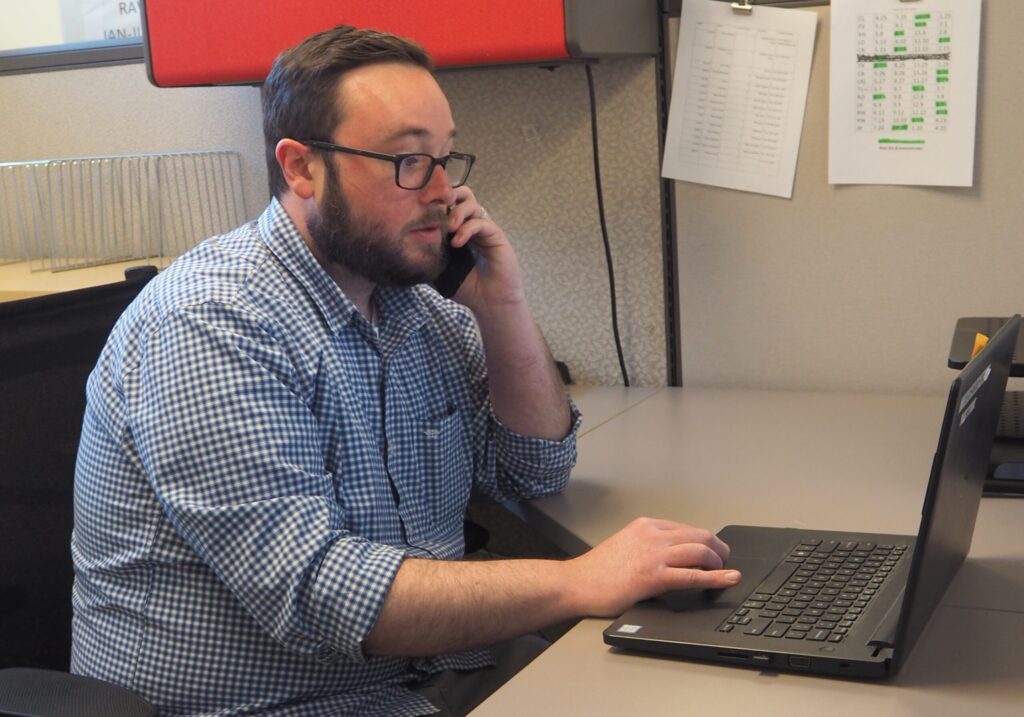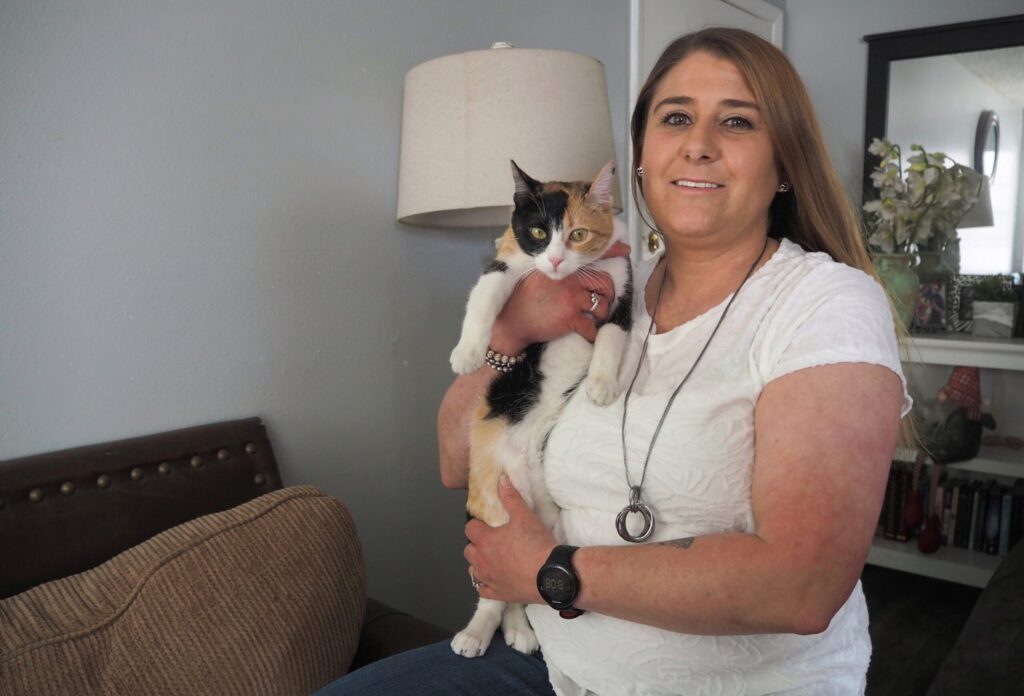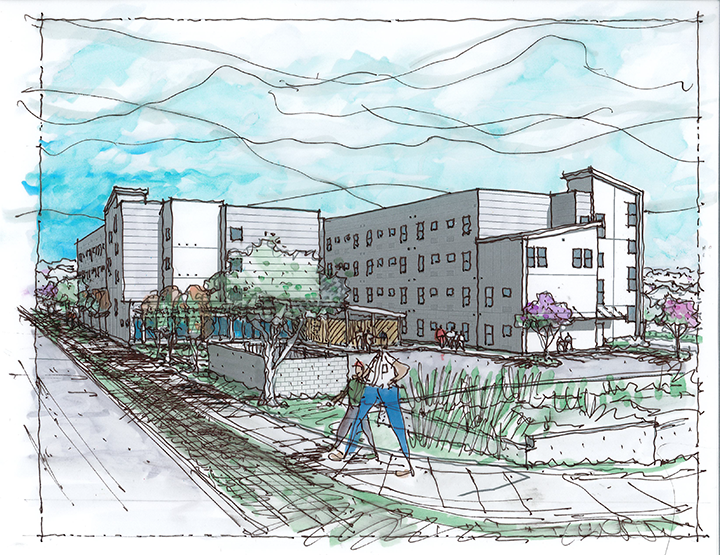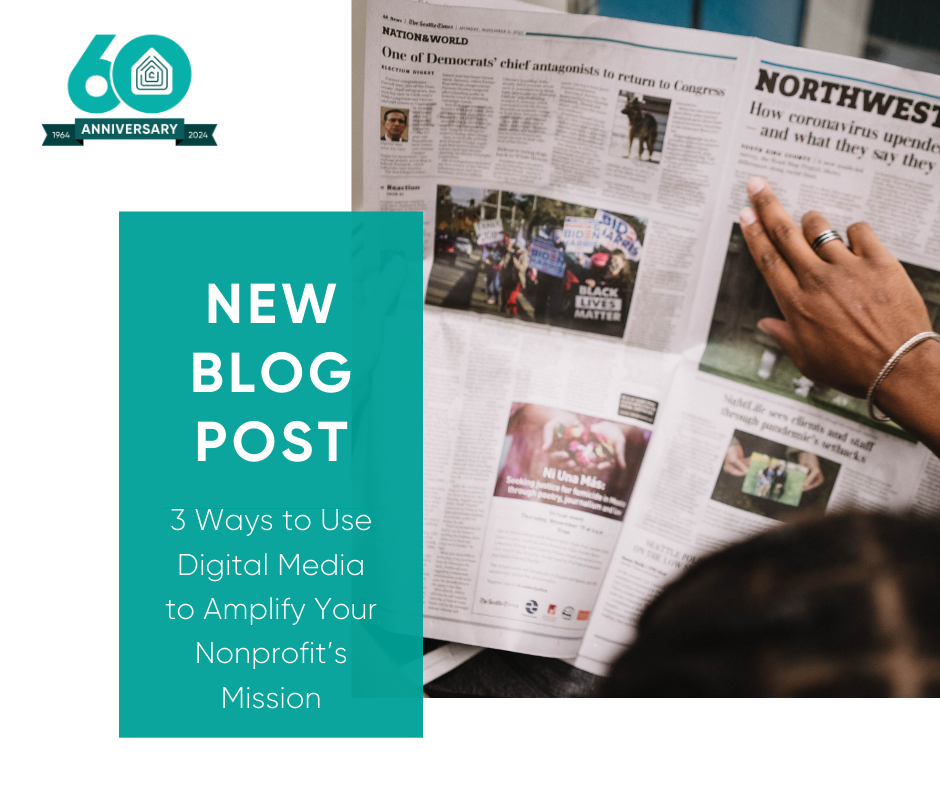How Caritas Puts the ‘Support’ in Permanent Supportive Housing
At Caritas of Austin, we believe that safe, stable housing is essential for people who have experienced homelessness to build well-being so they can reach their full potential. We utilize a model called Permanent Supportive Housing (PSH), which has been recognized as a best-practice nationally, and has had an impressive 95 – 98% success rate. The program provides financial assistance plus social and health support for those who have experienced homelessness and live with a chronic disability.

“The goal of Permanent Supportive Housing is not to necessarily have a participant remain in PSH forever, but for them to remain in permanent housing forever,” explained Jason Phillips, Deputy Director of PSH and Integrated Services. “Folks come into PSH for an average of about four and a half years and then they may identify another subsidy, if that’s the issue, or they may have enough income and stability to be able to graduate the program and live independently.”
How Permanent Supportive Housing Works
Caritas of Austin works with ECHO (Ending Community Homelessness Coalition), who administers an assessment that prioritizes the most at-risk individuals eligible for PSH. Each participant is paired with a case manager, and together they develop a unique service plan that provides connections to a wide range of community resources—from public benefits to primary care and mental health services to classes in life skills. If an individual is needing assistance paying rent and utilities, the program will provide that support, while participants contribute 30% of their income to housing costs.
“It’s so hard to get back on your feet and move on with your life when you don’t have anything,” said PSH participant Tracy Allen. “Their help makes you want to go out and do better.”
After a brutal incident of domestic violence left her in the hospital for three weeks, Allen found herself addicted to pain pills before turning to heroin as a cheaper, more accessible way of numbing her physical and emotional pain. Before long Allen was living in her car and, between 2013 and 2018, spent multiple stints in jail, before entering Caritas of Austin’s program.

Not only is Austin severely lacking affordable housing options, but criminal history, bad credit, and low income are common barriers to housing. Allen and her caseworker looked at twenty different apartment complexes before finding one that didn’t require a monthly income of three times the rent for a one-bedroom.
Allen is now 19 months sober, happily reunited with her family, employed at Target, and in a supportive, loving relationship. She’s also looking forward to returning to school so she can renew her X-ray technician certification and return to her previous career.
“They want you to be able to pay your rent and they want you to go to work,” said Allen. “I think it’s great that I can finally start paying some rent because now I don’t feel like I’m just living for free. I’m contributing and, maybe one day, I won’t have to rely on Caritas and I can give it to the next person that may need the same help I needed.”
Expanding Our Capacity
We know that the Permanent Supportive Housing model can help us reach our goal of ending homelessness in Austin- but first we need to expand our housing services so we can serve more people. This summer, we are partnering with Vecino Group, a national developer of mission-driven housing, and Austin Housing Finance Corporation (AHFC) to break ground on a new apartment community, Espero Austin at Rutland, which will house 171 people who have been experiencing homelessness.
“By moving in the direction where we’re building developments, we’re able to control that healthy environment,” said Phillips. “We can’t control an environment in a neighborhood or apartment community that we’re renting versus owning. We’ll now have more opportunities to be creative and actually manage the property.”

In addition to security, property management staff and front desk clerks, there will also be case managers, benefits specialists, peer support specialists and other interdisciplinary roles on site at Espero Austin. This supportive community is just one piece of our growth plan to progressively increase the number of people we provide with housing services each year, with a goal of serving 1,260 individuals on 2025.
Phillips concluded, “If folks don’t want to see people on the streets, for whatever reason that is, we need to come together as a community and commit to supporting new housing developments that are safe, high-quality and affordable.”



